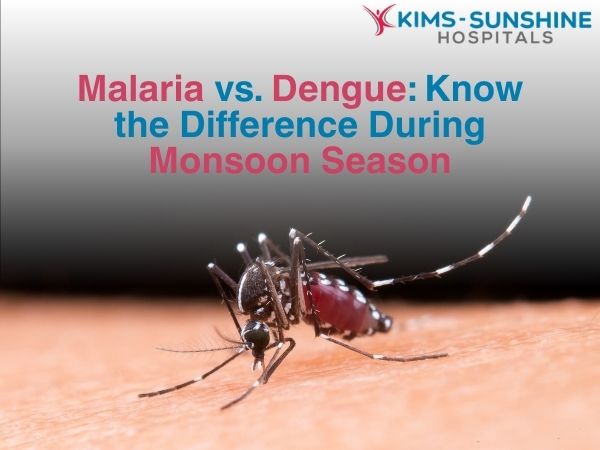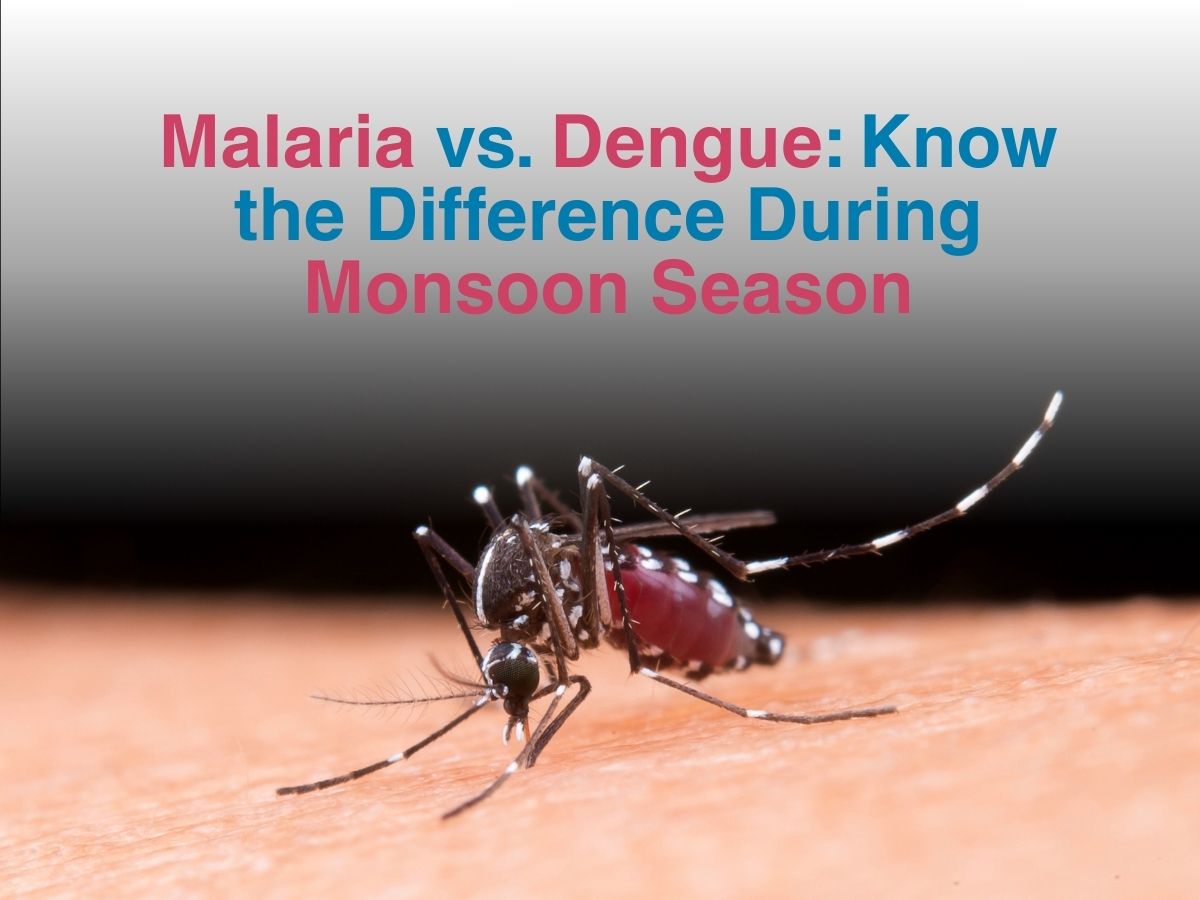
Malaria vs. Dengue: Know the Difference During Monsoon Season

How To Identify Malaria vs Dengue During Monsoon?
As monsoon arrives and brings lush greenery and cooling breezes, it also brings the hidden buzz and bite of mosquitoes that carry malaria and dengue, and when symptoms begin many families pause and wonder if this is ordinary malaise or something deeper.
Malaria often arrives in waves- temperatures rising sharply, then easing for a few hours, repeat rhythm like drumbeats, accompanied by chills or shaking and extending into sweat, while dengue tends to begin with a stable high fever that is sudden and intense, often paired with deep muscle or joint pain, sharp headache, pain behind the eyes, and a strange sense of perpetual exhaustion.
Monsoon Diseases Prevention Tips For Dengue And Malaria-
Preventing mosquito-borne diseases during monsoon is less about sterility and more about gentle vigilance, turning routines like emptying containers, scrubbing corners, using treated nets, and wearing lighter but full-length clothing into daily rituals of self-protection rather than burdensome chores.
Using mosquito repellent creams or coils in the evenings, installing fine-mesh window screens, keeping doors closed as dusk arrives and introducing citronella candles or neem oil vapour- all these create imperceptible borders that mosquitoes struggle to cross.
How To Treat Dengue And Malaria At Home?
When the first fever takes hold, gearing up simply with rest, plenty of hydration, a thermometer and perhaps a pulse oximeter becomes the beginning of trusted care, rather than rushing to harsh pills- malaria demands immediate anti-malarial medication prescribed by a physician, ideally started within hours of diagnosis, while dengue primarily needs vigilant fluid support, mild paracetamol for fever and clinical observation to ensure platelet counts don’t fall dangerously.
Nourishing foods like khichdi, elaneer (coconut water), lemon-honey water, tender coconut pieces, tulsi-ginger tea, or rasam with mild spices become more than comfort- they restore electrolytes, soothe fatigue and gently steady the digestion when the body is deeply recalibrating; while for malaria, supplemental iron or red-rice porridge may support anaemia that may develop in prolonged cases, under physician guidance. Papaya leaf decoction can greatly help improve platelet levels if you have dengue.
In both cases, it’s crucial to avoid NSAIDs, aspirin, or even ibuprofen in suspected dengue, as they heighten the risk of bleeding; and for malaria, avoid herbal immunity boosters that interact poorly with anti-malarials- true healing lies not in shortcuts but in supportive rest, clean fluids, prompt medication and keeping a watchful eye on warning signs like severe abdominal pain, bleeding gums, persistent vomiting or breathing difficulty – all of which demand immediate hospital care.
Complications Of Dengue vs Malaria Infection-
Though both malaria and dengue often resolve with prompt care, complications can unfurl swiftly- malaria may invade the brain as cerebral malaria, clouding consciousness or accompanied by seizures, or strain the kidneys until they shut down, or sap oxygen from blood causing respiratory distress. Dengue, on the other hand, carries the spectre of plasma leakage, where capillaries soften and fluid slips into spaces between cells, leading to low blood pressure, shock, internal bleeding or organ compromise.
Conclusion
In the swirling embrace of monsoon, where rainwater collects and mosquitoes find their warmth, knowing the difference between malaria and dengue transforms passive worry into mindful agency. This reminds us that small actions- closing vents or windows and doors at dusk, sipping lemon water during fever, testing at the first sign of chills or burning eyes- become threads in a safety net woven across moments of crisis and wellness alike. Good health in monsoon depends not on immunity alone, but on intent, informed choices, shared vigilance and hope that today’s care becomes tomorrow’s survival- because both malaria and dengue thrive when darkness catches us unaware and both can be held at bay when understanding meets action.






